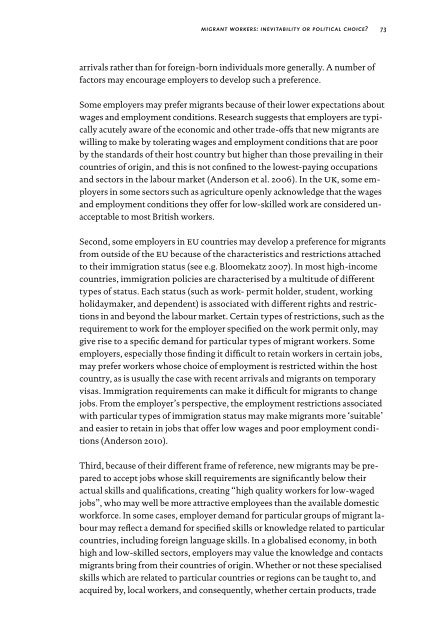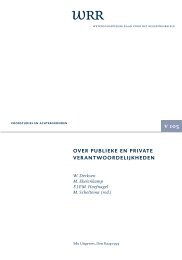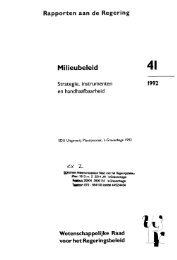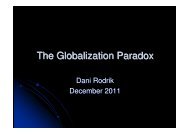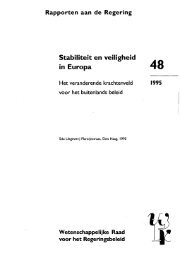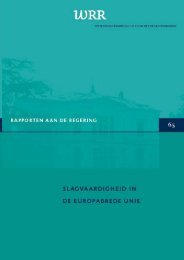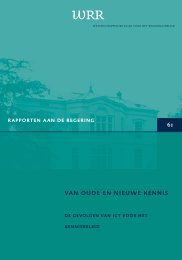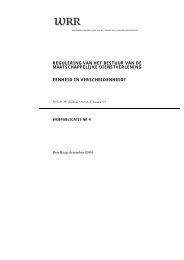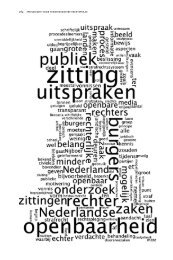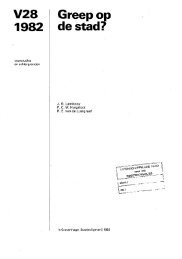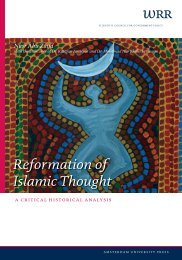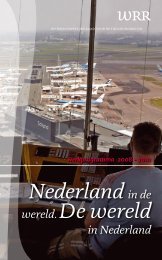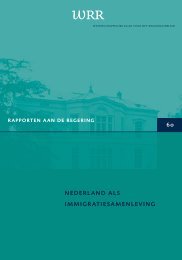Making Migration Work - Wetenschappelijke Raad voor het ...
Making Migration Work - Wetenschappelijke Raad voor het ...
Making Migration Work - Wetenschappelijke Raad voor het ...
- No tags were found...
Create successful ePaper yourself
Turn your PDF publications into a flip-book with our unique Google optimized e-Paper software.
migrant workers: inevitability or political choice?73arrivals rather than for foreign-born individuals more generally. A number offactors may encourage employers to develop such a preference.Some employers may prefer migrants because of their lower expectations aboutwages and employment conditions. Research suggests that employers are typicallyacutely aware of the economic and other trade-offs that new migrants arewilling to make by tolerating wages and employment conditions that are poorby the standards of their host country but higher than those prevailing in theircountries of origin, and this is not confined to the lowest-paying occupationsand sectors in the labour market (Anderson et al. 2006). In the uk, some employersin some sectors such as agriculture openly acknowledge that the wagesand employment conditions they offer for low-skilled work are considered unacceptableto most British workers.Second, some employers in eu countries may develop a preference for migrantsfrom outside of the eu because of the characteristics and restrictions attachedto their immigration status (see e.g. Bloomekatz 2007). In most high-incomecountries, immigration policies are characterised by a multitude of differenttypes of status. Each status (such as work- permit holder, student, workingholidaymaker, and dependent) is associated with different rights and restrictionsin and beyond the labour market. Certain types of restrictions, such as therequirement to work for the employer specified on the work permit only, maygive rise to a specific demand for particular types of migrant workers. Someemployers, especially those finding it difficult to retain workers in certain jobs,may prefer workers whose choice of employment is restricted within the hostcountry, as is usually the case with recent arrivals and migrants on temporaryvisas. Immigration requirements can make it difficult for migrants to changejobs. From the employer’s perspective, the employment restrictions associatedwith particular types of immigration status may make migrants more ‘suitable’and easier to retain in jobs that offer low wages and poor employment conditions(Anderson 2010).Third, because of their different frame of reference, new migrants may be preparedto accept jobs whose skill requirements are significantly below theirac tual skills and qualifications, creating “high quality workers for low-wagedjobs”, who may well be more attractive employees than the available domesticworkforce. In some cases, employer demand for particular groups of migrant labourmay reflect a demand for specified skills or knowledge related to particularcountries, including foreign language skills. In a globalised economy, in bothhigh and low-skilled sectors, employers may value the knowledge and contactsmigrants bring from their countries of origin. W<strong>het</strong>her or not these specialisedskills which are related to particular countries or regions can be taught to, andacquired by, local workers, and consequently, w<strong>het</strong>her certain products, trade


